Prisoners gain new focus through pinhole photography
- Published
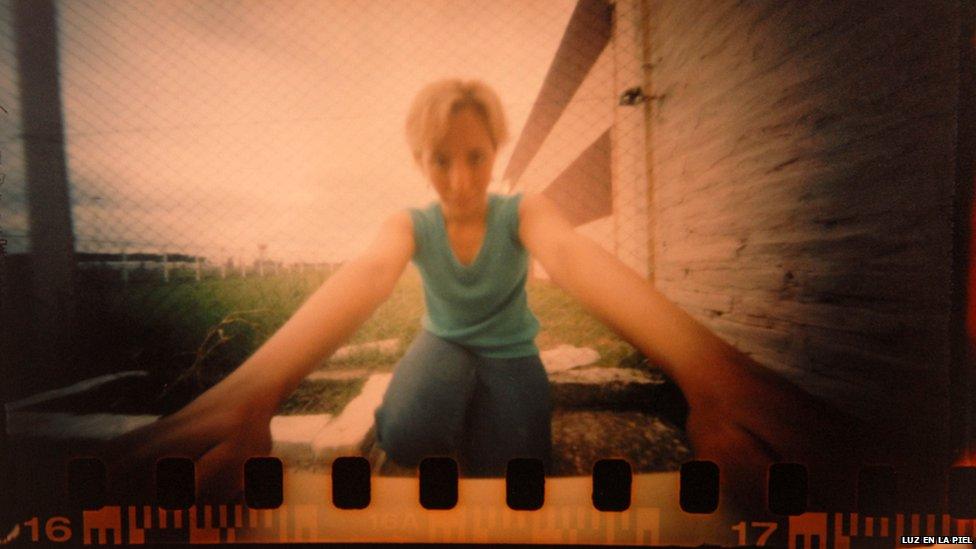
Inmates say the workshops allow them to show prison life as they experience it
"People think prison is like a horror film," says Celeste Moyano, sitting in the library of the Unidad 31 women's penitentiary outside Buenos Aires.
The room is lined with shelves holding piles of tatty books in several languages.
Sun shines through barbed wire and a barred window, casting a gentle glow on walls with peeling paint and a ceiling stained by damp.
"Prison isn't what society thinks it is," the inmate continues.
"I want to show the reality. This isn't what you've seen before."
Ms Moyano participates in a photography workshops facilitated by YoNoFui, a social organisation that runs support and education schemes for women both in and outside prison.
The core idea behind the workshop is to teach prisoners life skills while providing a vital space for their self-expression.
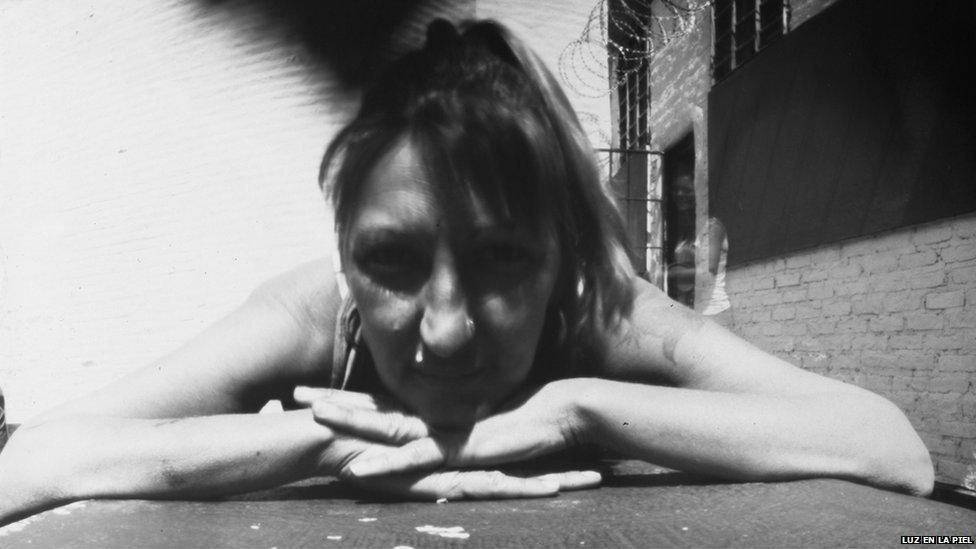
Some inmates take self-portraits
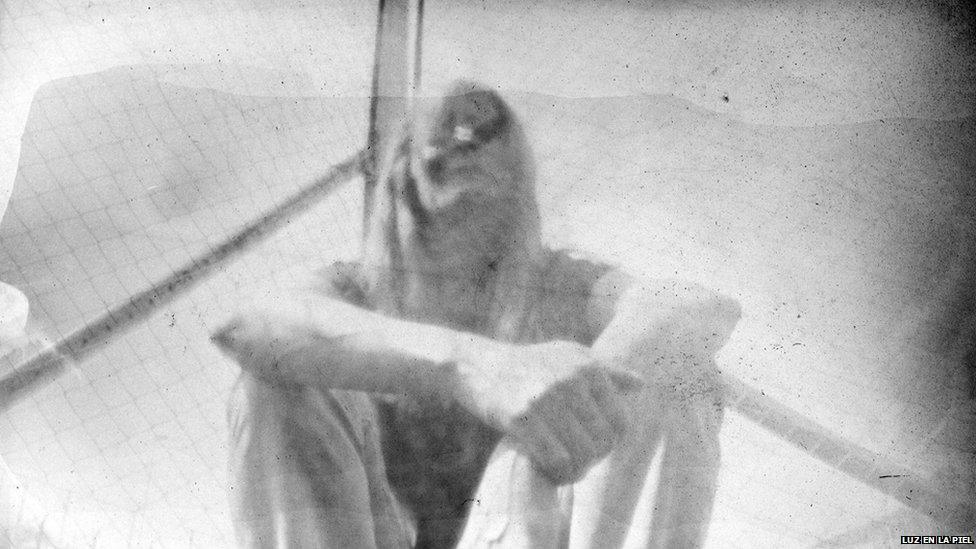
Wire and barred windows frequently feature in the photos
Every Monday afternoon, a group meets to take pictures in a small yard at Unidad 31, carefully handling what looks like a wooden box attached to a conventional modern tripod.
It is a hand-made pinhole camera. Light shining through the hole projects images that are captured by a roll of film inside the box.
"Pinhole cameras allow a better reflection of the moment a photo is taken, because you have very few photos," says instructor Alejandra Marin.
"It gives people a higher sense of conscience about the image. They take a much more critical view and think more about what they want to show."
'You're not there'
Liliana Cabrera, who spent seven years in jail, says the photo workshop was like a "revolution" and became a virtual means of escape for her.
"For that short time, you are not a prisoner. It's like you're not there," she explains.
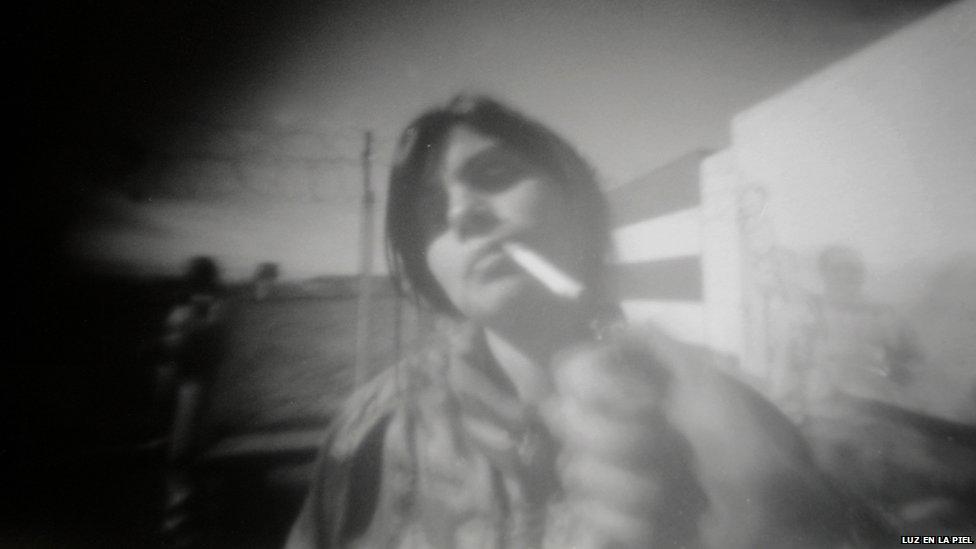
Prisoners say the workshops allow them to forget they are in prison
"Afterwards, you go back to your routine, but at least you had a moment to think about other things."
Photos from the project are characterized by a surreal blurriness, an effect of opening the pinhole for several seconds so enough light enters the camera.
They depict forlorn figures, parts of people's bodies, sleeping babies (who can live with their mothers in prison until the age of four) or hauntingly empty interiors bathed in sunlight.
Many are portraits of striking solemnity.
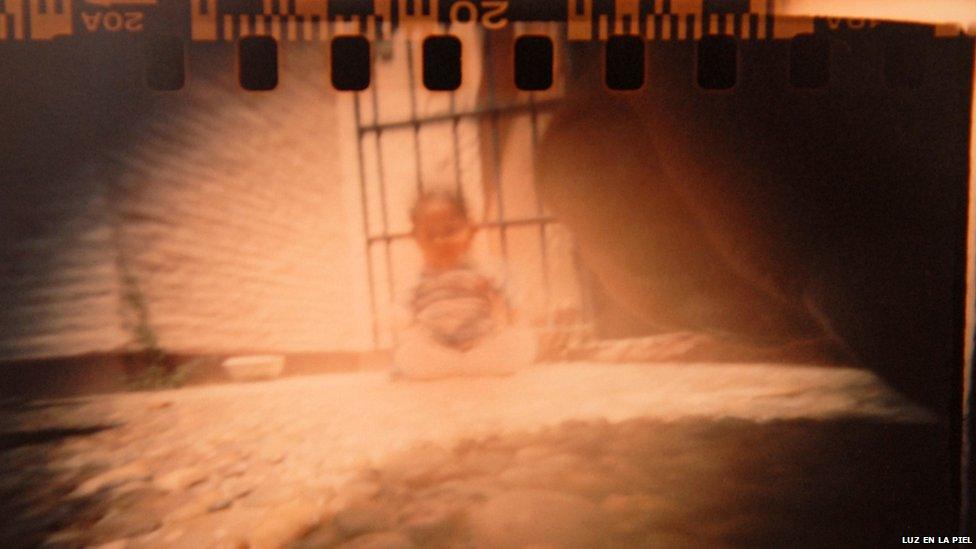
Children up to the age of four are allowed to live with their mothers in prison
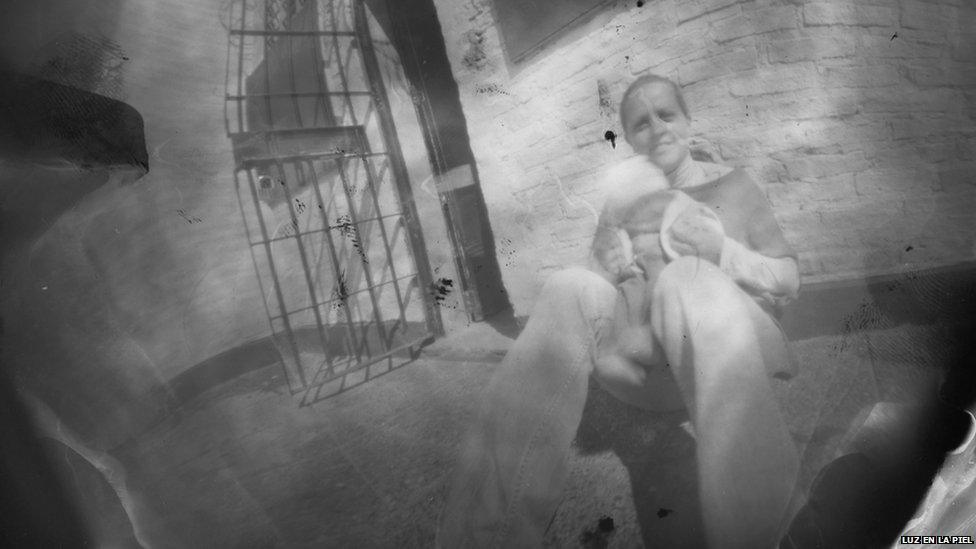
They often feature in the pictures the inmates take
"I want to show that I almost live alone," says Romina Ausqui.
"Even though I'm surrounded by people, I am with one person - myself - and nobody else. In solitude," she explains.
'World within'
YoNoFui also offers courses in poetry, journalism, textiles, bookmaking and carpentry.
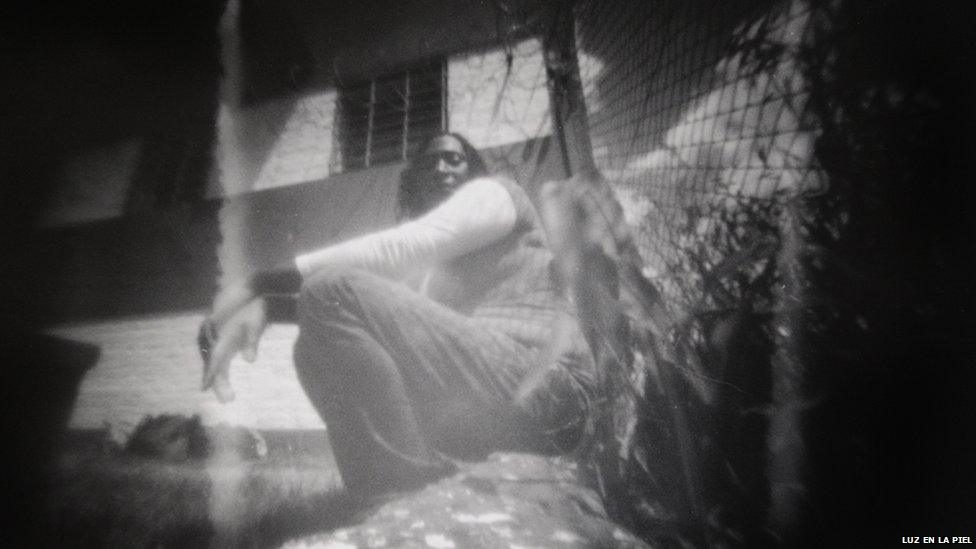
The organisation running the workshops was founded in 2007
It even produces a magazine chronicling the experience of its students.
The organisation was founded in 2007 by Maria Medrano, a writer and social worker who had been holding poetry classes at prisons for several years.
Ms Medrano says was profoundly influenced by a meeting she had in 1996 with a Belarusian woman.
The woman had been arrested for trying to smuggle drugs out of Argentina after being tricked into the trip by a conman with the promise of an Italian holiday.
"I didn't know her language, and she didn't know ours," Ms Medrano recalls.
"She didn't have anybody and was here in winter, dressed for summer. I went to the prison with clothes and hygiene products to give her. We became great friends."
Seeing that "world within a world" inspired Ms Medrano to start teaching and eventually create YoNoFui, which translates as "It wasn't me".
'Prison stays with you'
Although the project receives government funding, the long-term goal is for it to finance itself though the sale of goods such as furniture and handicrafts produced in its workshops.
"We are very conscious that the state has accompanied us [with funding] because we are covering a need they do not cover," explains Ms Medrano.
But the work does not stop when a prisoner walks free.
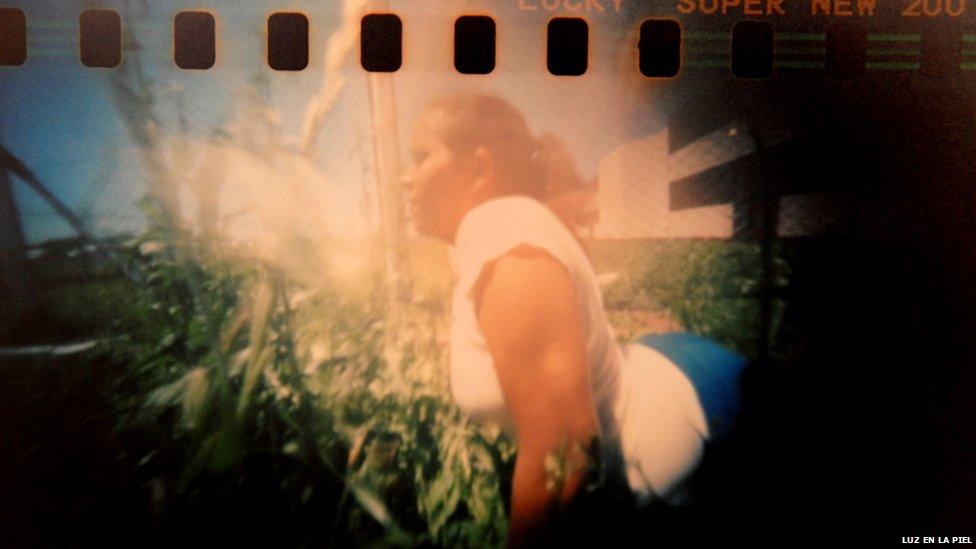
Former inmates are also welcome at the workshops
She says that YoNoFui also offers an important support network for women trying to re-integrate into society.
"Everybody sees you differently - sometimes you even discriminate against yourself," recalls Lily Teomanopulos, who now works as a seamstress for the YoNoFui co-operative after serving a seven-year sentence.
The 47-year-old mother of seven got into trouble when her tenant kidnapped and imprisoned a person in the house she had let out to him.
Ms Teomanopulos had no written contract to show her connection with the tenant was only a business one and ended up implicated in the crime even though she is adamant she did nothing wrong.
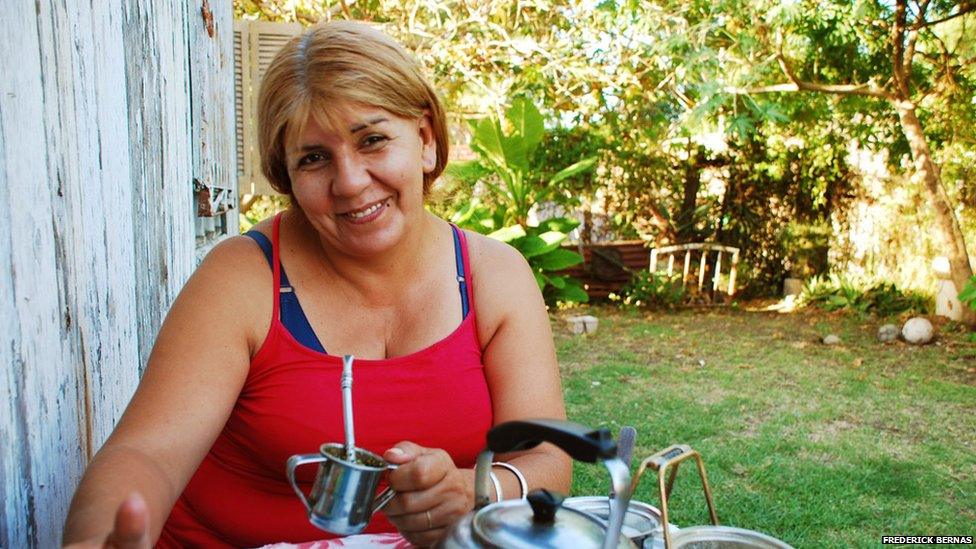
Lily Teomanopulos spent seven years in jail
"It [your time in prison] stays with you, and that's the point of YoNoFui - to help you adapt and leave that world. You feel more secure with people who have been through similar things. You don't trust anyone and feel scared to cross the street," she explains.
Ms Teomanopulos wants to set a positive example for other women, showing them that they can use what they learn from YoNoFui to survive without having to resort to crime.
The photography workshops are aimed at helping prisoners gain "vision" by offering deeper perspectives on how to live.
The idea is that the delicate process of using a pinhole camera will further that vision, especially at a time when point-and-shoot technology and mobile phones with cameras are ubiquitous.
"Digital photography is a reflection of everything we do," teacher Alejandra Marin explains. "Nobody ever has time, you never finish anything before starting something else.
"For me, pinhole photography is like a philosophy of life: take the decision to go slower and think more."
An exhibition of the photos will be inaugurated on 18 July 2015 at the Haroldo Conti memorial cultural centre in Buenos Aires, external.
For a wider selection of photos also see the online book Luz en la Piel (Light on the Skin), external.
- Published17 May 2013
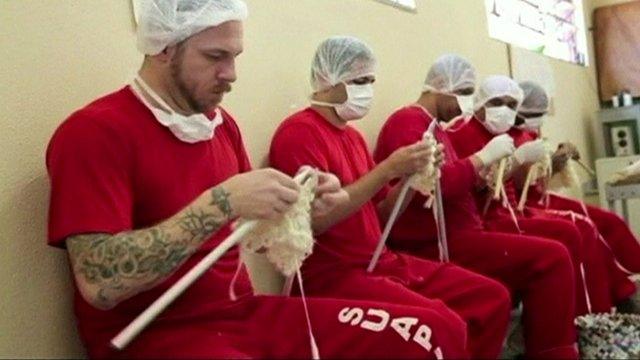
- Published5 June 2013
- Published21 April 2011